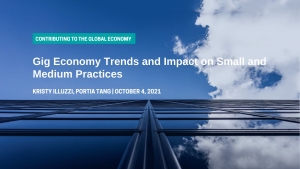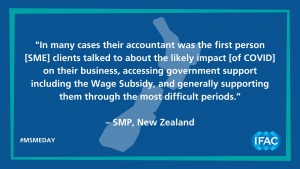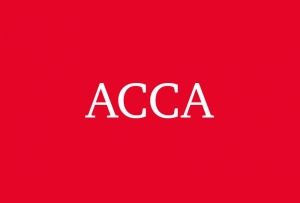عرض العناصر حسب علامة : SME
الإثنين, 18 أكتوبر 2021 20:18
اتجاهات اقتصاد العمل الحر وتأثيره على الممارسات الصغيرة والمتوسطة
يصف مصطلح "اقتصاد العمل المؤقت" سوق العمل الذي يشتمل على عقود قصيرة الأجل أو عمل مستقل بدلاً من الوظائف الدائمة. في الأربعينيات من القرن الماضي، شجعت الحرب العالمية الثانية على افتتاح أولى الشركات الكبيرة التي تروج للعمل من نوع العمل المؤقت، حيث تقدم العمالة المؤقتة للشركات التي تحتاج إلى سد فجوات القوى العاملة. منذ ذلك الحين، نمت قوة العمل المؤقتة بشكل كبير.
معلومات إضافية
-
المحتوى بالإنجليزية
Introduction and Definition
The term “gig economy” describes a labor market that comprises short-term contracts or freelance work as opposed to permanent jobs. In 1915, jazz musicians conceptualized the term “gig” in reference to live performances and the transient nature of their jobs. In the 1940s, World War II prompted the opening of the first large companies promoting gig-type work, offering temporary labor to businesses needing to fill workforce gaps. Since then, the gig workforce has grown grow exponentially.
The gig economy encompasses all sorts of contingent work arrangements, including the following:
Freelancers
Consultants
Independent contractors and professionals
Temps (temporary contract workers)
Moonlighters
Outsourced teams and networks
One major shift during the pandemic was the progression beyond app-based drivers for Uber or Lyft to a more diverse and highly skilled gig workforce, including small and medium-sized practices (SMPs) around the globe that have started to look at gig workers as they faced headcount freezes and a need to bridge the resourcing and talent gaps.
Gig Economy Trends and Statistics
A 2019 study by Mastercard estimated that the global gig economy generates $204 billion in gross volume, and is expected to grow by 17% by 2023. In the United States, it has been predicted that by 2027, the country may have more “giggers” than non-gig workers. According to a 2020 report from Intuit, 25-30 percent of the U.S. workforce is contingent, and more than 80 percent of large corporations plan to substantially increase their use of a flexible workforce in the coming years. Intuit predicts that small businesses will develop their own collaborative networks of contingent workers, minimizing fixed labor costs and expanding the available talent pool.
While 58 percent of the gig economy worldwide is in the area of transportation (according to the Mastercard study), other industries are starting to see a rise in gig workers as well, including accounting & finance, legal, IT and other professional advisory services.
Some companies have had to be creative with hiring through the pandemic. In some cases, that could mean hiring temporary or freelance staff where decreased budgets may not be able to accommodate full time staff salaries along with the cost of benefits. It has also been found that workers in Generation Z may prefer gig work to full time employment in a more traditional office environment, so employers are trying to be responsive to those changing needs and appetites. Some additional advantages to gig work for the individual include the following:
Flexibility
Work-Life balance
Be your own boss
Digitalization provides more gig opportunities
Job exposures and career advancements
Provides an alternative income stream
Below we illustrate below the personality traits of the various generational groups in the workforce today, and how each of these generation groups will be able to fit into the gig economy by contributing their specific strengths and complimenting each other when working as a team:
While the trend of hiring gig workers has been upward for years now, the pandemic seems to have given those numbers a boost. According to Forbes, there were 24 percent more gig workers in the summer of 2020 than in previous years. Many independent workers prefer having greater flexibility, and this became crucial during the pandemic, especially for those workers that have young children or aging parents at home that needed to be cared for. Technology has also been a key driver, and new platforms have been developed where gig workers are able to sell their services or bid for work across the globe and work from virtually anywhere.
In July 2019, a CPA Australia survey of members and accountants in public practice found that the younger the firm, the more likely they were to rely more on gig workers over the next 5 years. For example, if a firm was less than 8 years old, over 48 percent of those firms surveyed expected to rely on the gig economy more than older firms.
How Companies Can Adapt
Companies may encounter challenges when they first start to hire gig workers. There are a number of things that they will need to consider. First and foremost, some countries, including the United States and the U.K. have been in ongoing legal battles regarding the classification of gig workers. The issues under consideration include how gig workers are treated for purposes of benefits, business insurance, and taxation.
For companies that are ready to move forward with a gig economy plan, below are the steps they should follow to change and adapt in order to get themselves ready for a gig workforce:
Implement policies that promote flexibility
Ensure legal adequacy by creating standard contracts and clear guidelines for both giggers and non-gigger employees on their abilities to provide gig work
Consider remuneration package, benefits and/or alternative compensation for gig workers
Improve employer’s branding and create a reputation as a great place to work in order to retain the best giggers.
Review talent acquisition requirements and key attributes that the company should look for when hiring giggers
Review the existing hiring structure to accommodate engagement of giggers, establish processes and controls to monitor the performance of giggers
Enable technological capabilities, including remote work policies and enhanced IT procedures for issues like cybersecurity
Complete with a flexible, sustainable and affordable resourcing strategy for now and for the future - look at “Resourcing” from a holistic perspective.
Being receptive, embracing change, understanding the importance of top-down transformation, leading the strategic implementation of the “future perfect team”, and encouraging growth for your team are all critical to ensuring a successful and sustainable gig economy strategy.
SMP Perspectives
In July 2021, the IFAC Small and Medium Practices Advisory Group (SMPAG) met to discuss some of the benefits and challenges of working in a gig economy and how their firms are leveraging a gig workforce. It became clear from the discussions that some countries are more hesitant to embrace giggers due to legal and governmental requirements placed on contractors in certain jurisdictions. Where SMPs are hiring giggers, it tends to be for very specific roles and responsibilities where it would not be cost efficient to hire a full-time employee.
Some examples of the types of work being outsourced to gig workers included IT, Finance, HR, entry level, routine or administrative and research functions. Some firms are even contracting with other firms, agencies, or firm networks to perform certain types of work. One example provided was bank field examinations (third party evaluation of collateral supporting a loan) being consolidated in certain markets by SMPs.
Some of the benefits for SMPs in hiring gig workers include:
Greater ease filling gaps in expertise when workload is insufficient to justify a full-time position
Handling workload compression and seasonality of certain work
The time differences around the globe can result in a 24/7 workforce
Access to a more diverse and skilled workforce
Cost savings, especially on shorter term projects or where deadlines are tight
Declining staff retention means replacing some with gig workers is not as big of a risk as it used to be for firms
Some of the drawbacks discussed include:
Limited knowledge transfer and development of internal capacity, which might in the long run be more costly
More difficulty building firm culture and developing long term relationship with clients
More challenges to training and quality management
Some gig workers take on too much work and have competing priorities with multiple firms/companies
Gig work is not always billable to a client therefore creating more overhead and administrative costs
Availability and loyalty of gig workers may not be as high as for employees
In many jurisdictions, gig workers are required to use their own technological devices, and this could result in greater technology and cybersecurity risks
SMPAG members also considered whether they see firms increasing the use of gig staff in the future. Many noted that this may be inevitable due to how the market is shifting, and some saw this as a way for retired partners to formally mentor the younger staff. Others believe SMPs need to create alliances to be able to compete, and that adding gig workers is one way to do that. Some SMPs are also hiring more temporary staff in an effort to save costs as they continue to navigate the economic impact of the pandemic.
Summary
It seems the trend towards hiring gig workers will continue upward, and expand to more skilled services, including those provided by SMPs. Careful consideration should be given to the benefits and some of the drawbacks to hiring gig workers, not to mention the legal implications in a given jurisdiction. Below are some additional resources related to the gig economy that may be helpful in navigating these decisions.
نشر في
محاسبة و مراجعة
موسومة تحت
الأحد, 04 يوليو 2021 10:38
كيف غيّر الوباء الدعم ونطاق الخدمات المقدمة للشركات الصغيرة والمتوسطة؟
معلومات إضافية
-
المحتوى بالإنجليزية
Designated as the United Nations Micro-, Small- and Medium-Sized Enterprises Day, June 27 comes with added significance this year. In every jurisdiction, small and medium-sized enterprises (SMEs) continue to suffer disproportionately from the economic fallout of the COVID-19 pandemic. And while SMEs have always relied on and had strong relationships with their accounting advisors, the pandemic affirmed and strengthened those relationships.
Small-and medium-sized practices (SMPs) are key business advisors to their SME clients, as this past year has shown. SMPs continue to guide SMEs—helping them remain solvent, connecting them with government programs, providing emotional and practical support and otherwise advancing their efforts to stay in business. All of this while also navigating their own sea of change.
To gauge how the pandemic has altered the range of services SMPs have delivered, the ways SMPs have responded to the new dynamic and the most important issues facing firms everywhere, IFAC informally gathered perspectives from nearly two dozen SMPs representing a diverse mix of countries. The following takeaways paint a picture of the current state of SMPs and their critical importance—particularly to small businesses—under these unique economic circumstances. They also offer a window into how SMPs can turn pandemic pain points into positive long-term transformation for their own practices as they continue to safeguard the critical role SMEs play in communities around the world.
1. Remote work models and mental health issues create an opening for more transparency and support
“Flexible, hybrid, agile working is here to stay.” – SMP Managing Partner, United Kingdom
When asked to name the most urgent concerns they face, SMP leaders overwhelmingly pointed to a variety of issues arising from remote work arrangements. Among the most prominent were adverse effects on employees’ and clients’ mental health.
For firms that weren’t already predominately remote, the new work arrangements strained tech budgets, employee culture, client relationships and productivity. Firms have had to take extra care to maintain a collegial work atmosphere and to keep clients responsive. In jurisdictions where employees are returning to the office, decisions about which pandemic measures to keep and which to do away with have become difficult. SMPs have had to adapt to employees’ general preference for remote work and the firms’ desire to boost productivity and restore a degree of normality to the workplace.
These challenges led many SMP respondents to identify mental health as a significant concern—for their clients as well as their employees. Several firms reported that clients’ anxiety and mental burnout have created an additional work challenge. Several accountants said it was important for them to remain calm and reassuring as they ran through clients’ financial options, and to keep their focus on the task at hand. One accountant in the United Kingdom described the need to “be there almost as a friend.”
The emotional toll felt among SMEs and SMPs has, in many cases, had the unforeseen benefit of forcing SMPs to invest in recalibrating their business operations and in finding balance in their work environments. The opportunity and demand to put in place more intentional mental health resources and more transparent cultures to talk openly about fatigue and burnout is unmistakable and invaluable.
2. Accountants’ indispensable support elevates the profession’s significance among business leadership
“SME requests have greatly changed. The role of the accountant has moved from simple advisor to that of a hand-holder, steering clients through challenges in finance, reporting, and risk management, that were never [before] contemplated.” – SMP Managing Partner, United States
Many governments have offered financial support packages for small businesses during the pandemic, but the disbursement of funds has been complicated by ever-evolving, often convoluted rules and eligibility requirements. In response, SMPs have become de facto facilitators, deciphering legalese, directing clients to suitable programs, assisting with applications and effectively navigating them through the entire process.
An accountant in Germany recalled taking extra steps for a small business owner. “I have a client who operates two truck stops,” he says. “Because of his mixed sales (fuel and food) he did not qualify for government subsidies.” As his client tightened its belt, he kept a watchful eye on new legislation. When an amendment was passed that made his client eligible, he got to work: “Very quickly I managed to do all the paperwork with the application of the subsidies, and he received a huge amount of money to get through the rest of the lockdown.” An accountant in Tunisia also described the need to stay abreast of the latest COVID regulations and be able to communicate them both clearly and quickly to clients.
SMPs have become their clients’ guides beyond their usual scope, underpinning the role of SMPs as drivers of business strategy and long-term value creation. While this can certainly raise the need for closer attention to ethical considerations, it has also reinforced the fact that accountants are an integral part of economic resiliency. The profession can use their hard-earned trust during this crisis to broaden their role and continue to provide a wide range of services to support the leadership and decision-making functions of any business.
3. As SME needs grow, so do the opportunities for SMPs to serve as the trusted advisor
“The best way to build and maintain trust with our SME clients is through a consistent communication, focusing on the effective needs of the client and trying to reinvent, through innovative and "out the box" solutions.” – SMP Managing Partner, Brazil
Some SMPs dread the financial wakeup call that has and will continue to come when government support runs out. Understandably, accountants are concerned that clients’ financial troubles could affect their own cash flows. Others point to a long-time fact of working with SMEs: many small business owners offer a valuable product or service but lack robust financial skills.
Nevertheless, as accountants imagine a post-pandemic future, many expect their role with SME clients to continue to grow. An accountant in South Africa suggested that businesses have come to expect their accountants to be vocal advocates for them. For example, “SMEs expect their accountants to negotiate on their behalf with technology companies that can assist them to digitalize their operations,” she said.
An accountant in Malta believes that SMPs should embrace this expanded role and help their clients build their businesses back better than they were pre-pandemic. In particular, he contended that accountants should consider helping their client businesses become more accessible to customers through a “robust and efficient online shop of their products and services,” supporting digitalization of internal processes and advising on the organization of hybrid remote work models.
An Australian accountant captured the value of the profession’s strong reputation going into the pandemic: “Professional Accountants as trusted advisors were the first people that business owners turned to for help in working out a strategy that would enable them to be able to operate in a COVID world.” While the lasting effects of the pandemic on small businesses won’t be fully understood for years to come, the respondents revealed a strong international consensus among SMPs that the pandemic has only strengthened this dynamic.
Faced with daunting financial realities, small business owners are increasingly turning to their most trusted advisors to ensure long-term viability, and SMPs are well-positioned to smartly cultivate the immense value only they can provide.
نشر في
محاسبة و مراجعة
موسومة تحت
الأربعاء, 12 أغسطس 2020 14:37
لماذا يمكن أن تكون شركات المحاسبة الأصغر هي خطوتك المهنية التالية؟
نشر في
محاسبة و مراجعة
موسومة تحت
الثلاثاء, 27 سبتمبر 2022 12:16
تقرير مايو 2020 لمجموعة الاقتصادات الناشئة
نشر في
محاسبة و مراجعة
الأحد, 21 يونيو 2020 11:27
Master Study: Determinants of the Usage of Management Accounting Practices in Small and Medium Sized Enterprises Operating in Egypt
Recent years have witnessed an escalating concern worldwide, about the accounting practices in small and medium sized enterprises (SMEs)
نشر في
رسائل ماجستير و دكتوراة
موسومة تحت
الثلاثاء, 02 يونيو 2020 12:22
كورونا والاستمرارية: إرشادات لمديري الأعمال الصغيرة والمتوسطة
أصدر معهد المحاسبين القانونيين دليل إرشادي لمديري الأعمال الصغيرة والمتوسطة لاستمرارية اعمالهم في ظل كورونا
نشر في
محاسبة و مراجعة
الإثنين, 26 سبتمبر 2022 12:01
في الأزمات، تحتاج الشركات الصغيرة إلى شركات محاسبة صغيرة
نشر في
محاسبة و مراجعة
موسومة تحت
الخميس, 02 أبريل 2020 21:04
شارك برأيك حول تعديل المعايير الدولية لإعداد التقارير المالية للشركات الصغيرة والمتوسطة
معلومات إضافية
- المحتوى بالإنجليزية The IFRS for SMEs Standard Update is a staff summary of news, events and other information about the IFRS for SMEs Standard and related SME activities. The staff summary has not been reviewed by the International Accounting Standards Board (Board).
نشر في
محاسبة و مراجعة








